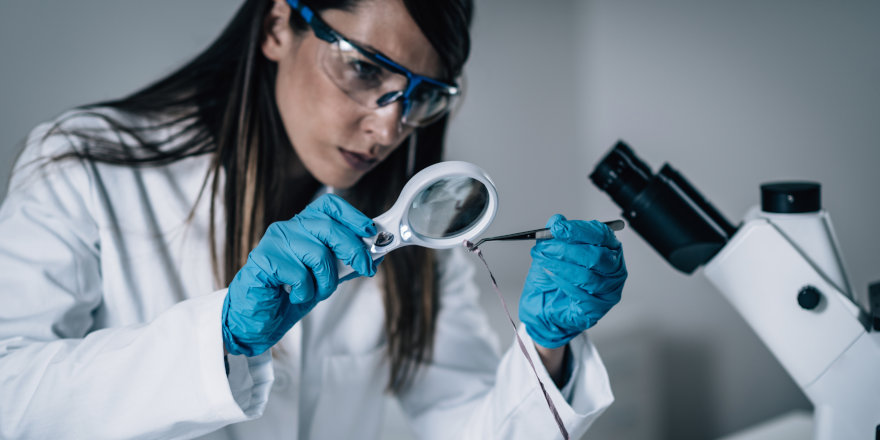
Forensic scientists can work for the government, private laboratories, police departments, medical examiners’ offices, independent agencies and hospitals.

Some of the areas of concentration include forensic crime scene investigation, digital evidence analysis, forensic biochemistry, forensic computer analysis and forensic pathology.

The exact responsibilities of a forensic scientist are dependent on his or her area of focus and the industry in which the individual is employed.
.jpg)
Reporting the results by producing documentation.Consulting with peers with different areas of expertise, such as toxicology.Conducting scientific analysis of evidence.Visiting crime scenes to collect and categorize evidence.Generally, a forensic scientist has the following daily duties: The ability to remain unbiased and impartial when looking at different situations and evidence.Professional integrity and discretion when dealing with highly sensitive subject matter.Qualitative and quantitative analysis skills.Critical thinking skills and the ability to apply research to complex problem-solving.Written communication skills - producing scientific reports is often a key responsibility.Verbal communication skills - many positions require public speaking in criminal proceedings.It helps to consider the following skills and personality traits that typically equip candidates to be successful in forensic science:

Individuals should consider these unique requirements when evaluating if becoming a forensic scientist is the right fit for them. Forensic scientists may be asked to collect evidence at an active crime scene or participate in a criminal trial. While those interested in pursuing a career in this field must have a passion for science, this is not solely a lab-based occupation. With this primary purpose, forensic science can be a challenging, rigorous and highly rewarding career path for individuals looking to make a difference. Typically, forensic scientists support criminal investigations through the collection and analysis of evidence to produce scientifically credible findings. The daily responsibilities of a forensic scientist can be highly complex and diverse.įorensic science is the application of various sciences, such as chemistry and biology, to legal matters. Although forensic scientists are glamorized on TV crime shows, there is much more to this rewarding profession than Hollywood drama.


 0 kommentar(er)
0 kommentar(er)
